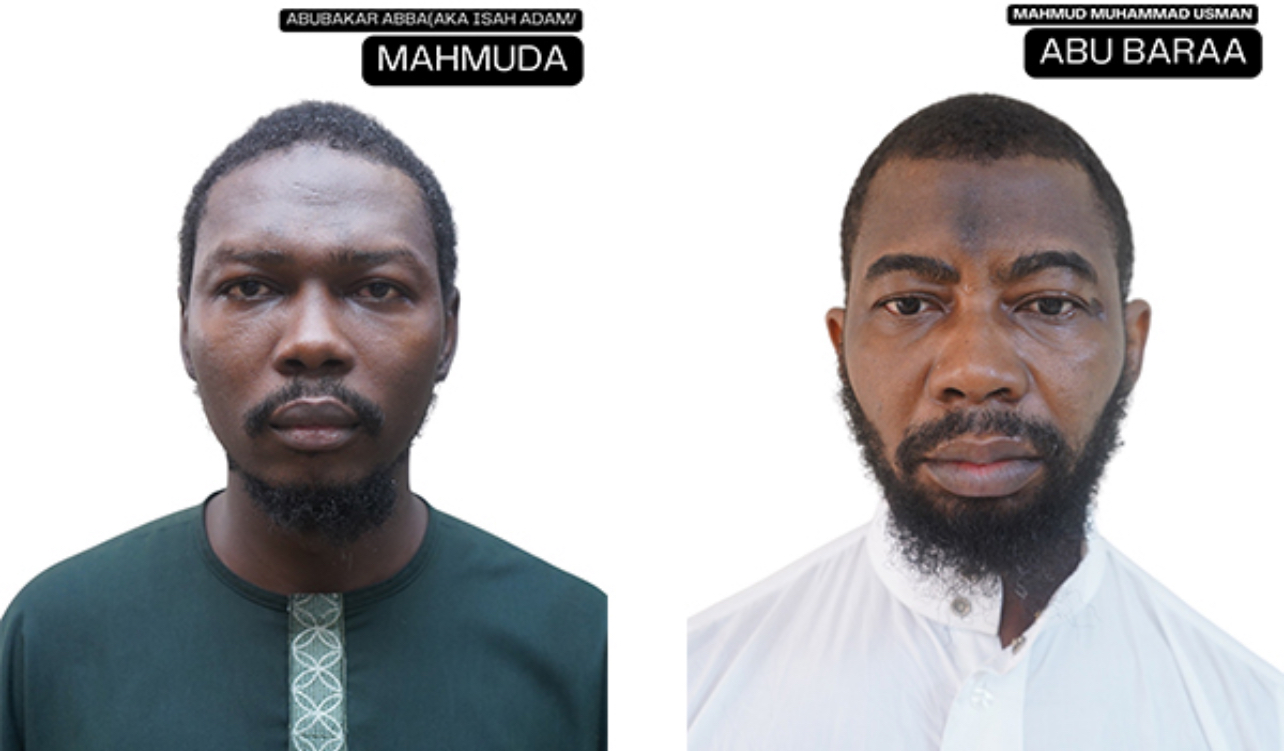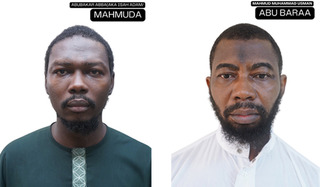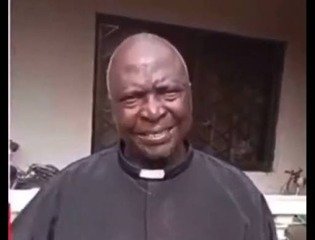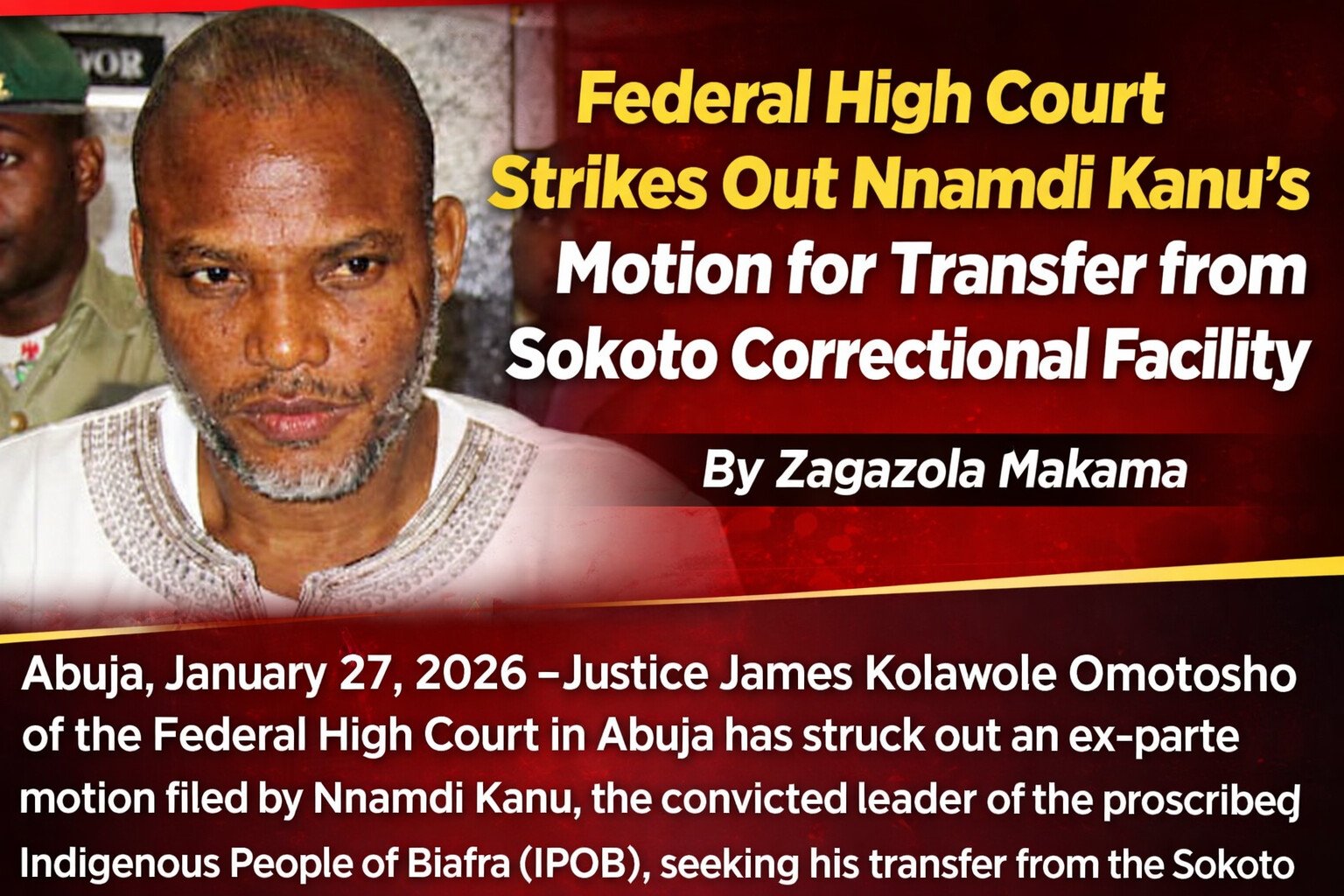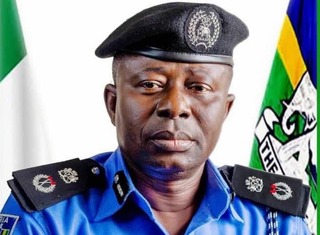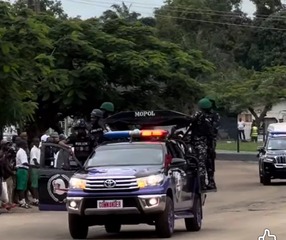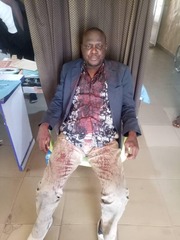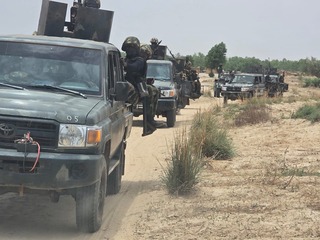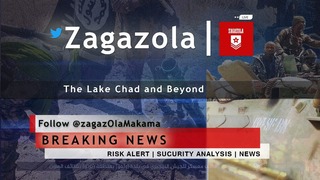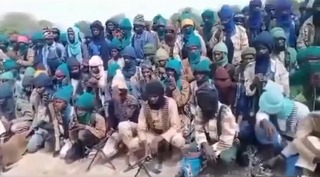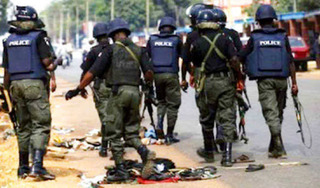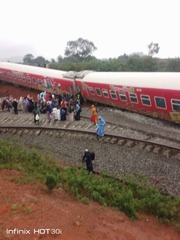ANALYSIS: What Ansaru leaders' arrest means to Nigeria's War on Terror
by Chidi Omeje
On Saturday, August 16, 2025, the National Security Adviser, Nuhu Ribadu, in a well-attended press conference in Abuja, announced the arrest of two top leaders of Ansaru terrorist group.
According to him, Mahmud Muhammad Usman (Abu Bara'a) and his deputy, Mahmud al-Nigeri (Mallam Mamuda) were captured in a long-drawn intelligence operation coordinated by the Department of the State Services (DSS).
For the visibly excited Ribadu and those following the development, the arrest of the duo was yet another remarkable breakthrough in Nigeria's long and painful war against terrorism.
But who are these guys and why are they such a priced trophy?
Ansaru, formally known as “Vanguards for the Protection of Muslims in the Black Lands”, emerged in 2012 as a breakaway faction of Boko Haram. The group swiftly aligned itself with Al-Qaeda in the Islamic Maghreb (AQIM), establishing influence through sleeper cells and forest strongholds across northern Nigeria.
The arrested kingpins are believed to have played central roles in several high-profile terrorist operations, including: the 2022 Kuje prison attack; assault on a uranium facility in Niger; the 2013 abduction of French engineer Francis Collomp in Katsina. They were also responsible for the 2019 kidnapping of Alhaji Musa Umar Uba, the Magajin Garin Daura, and also the abduction of the Emir of Wawa.
Intelligence sources indicate that the two men also maintained active operational links with extremist networks in Mali, Niger, and Burkina Faso.
For over a decade, the Ansaru terror group has thrived in the shadows of Nigeria’s security challenges, presenting itself as an Al-Qaeda-aligned alternative to Boko Haram but proving no less ruthless.
By capturing their “Emir” and his Chief of Staff in a high-risk, intelligence-led operation, Nigeria has achieved what some observers once considered near impossible: penetrating and dismantling the top tier of one of the country’s most resilient terrorist groups.
A number of security buffs are of the considered opinion that this success signals a shift in Nigeria’s counter-terrorism architecture. For years, critics accused security forces of fighting terrorism reactively, chasing after attacks rather than preventing them. It is in this light that the sustained operation that eventually netted Abu Bara’a and Mamuda tells a different story: one of patient intelligence gathering, strategic coordination, and precise execution.
One or two things came out clear from this development: it is not a mere tactical win; it reflects a maturing strategy. How do I mean? Nigeria is investing in the kind of intelligence assets and inter-agency cooperation necessary to dismantle terror networks at their core, even if the results are just trickling in. It is also noteworthy that the much-spoken about synergy between and among the military, security, intelligence and response agencies, is somehow producing desired results. Efforts in this direction must therefore be sustained, going forward.
Another important point to note is that operations of this nature are fraught with extreme risk. Penetrating forest enclaves like Kainji National Park, known to straddle international borders and host armed cells, requires not only technical intelligence but raw courage.
The gallantry of the Nigerian operatives who carried out the mission must not be lost in the celebration. Their success represents the silent heroism of the Nigerian security forces led by the military often criticized but rarely acknowledged for the dangers it confronts daily.
The arrest of the two terror kingpins carry three major implications. First, they disrupt the command-and-control structure of Ansaru, depriving the group of its most experienced strategists and fundraisers. Second, they signal to international partners that Nigeria is becoming a more capable player in global counter-terrorism, very capable of neutralizing transnational threats within its borders. Third, they send a psychological shockwave through extremist circles, making it very clear to them that even the most elusive leaders will ultimately meet their Waterloo.
Yet, caution is necessary. Terrorism is resilient, often regenerating through splinter groups and sleeper cells. The capture of terror leaders, kingpins or footsoldiers while crippling, does not end the ideology or erase the networks already entrenched. If anything, it may provoke retaliatory attacks.
This is why sustaining the momentum, through vigilance, public cooperation, and continuous investment in intelligence asset, is crucial.
Perhaps equally important is the information battle otherwise known as war of narrative. As the Minister of Information, Mohammed Idris, rightly noted, terrorism thrives on publicity.
Ansaru, like Boko Haram or ISWAP, has long relied on propaganda to project power disproportionate to its real capabilities. By publicizing state successes and denying extremists the media oxygen they crave, Nigeria can tilt the narrative in favour of stability and resilience. In this regard, the Nigerian media must be reminded of it's patriotic duty to ensure that on no account should they offer their platform to project the activities or brutality of terrorists in our country.
Of a truth, Nigeria has often been accused of lacking “defining moments” in its counter-terrorism campaign, milestones that demonstrate progress beyond the cycle of attacks and counter-attacks. The arrest of Abu Bara’a and Mamuda is one such moment. It shows that the war against terror and banditry is on course and that our security forces can and will outmaneuver those who seek to destabilize the country.
The task now is to ensure this victory becomes a springboard for sustained pressure on all terrorist elements, from Ansaru to ISWAP and Boko Haram.
For a nation battered by years of insurgency, this singular development is very refreshing but must not be a source of complacency. The tide is definitely turning, and Nigeria is reclaiming its future from the forces of terror.
*Chidi Omeje is a senior editor at the Zagazola Media Network

